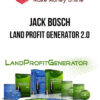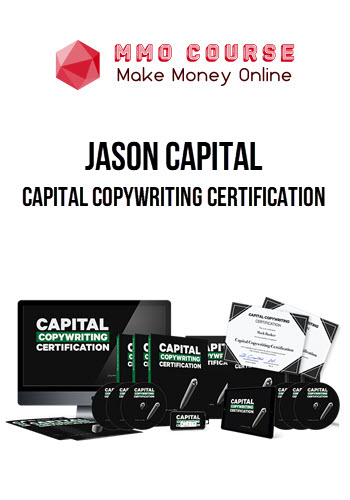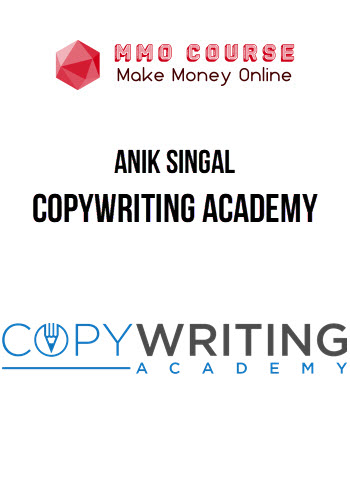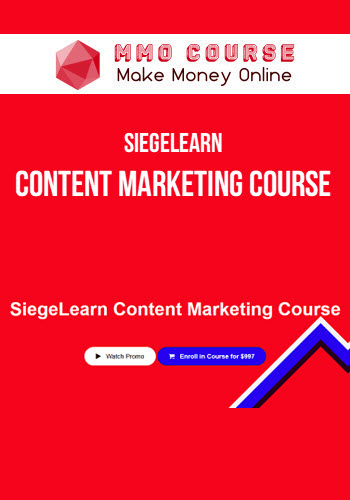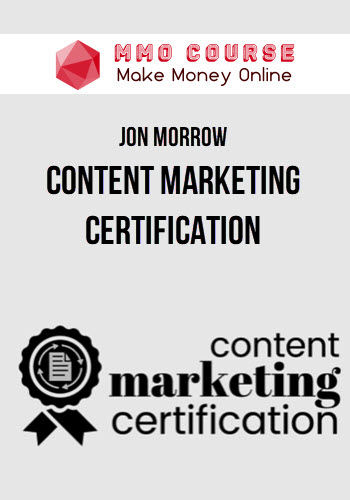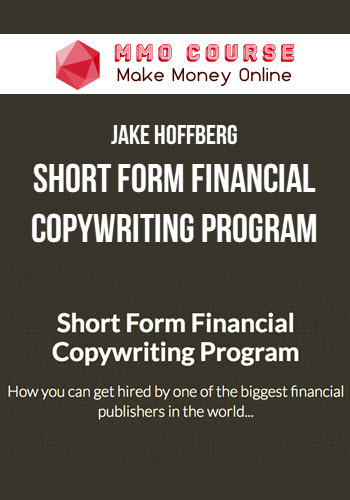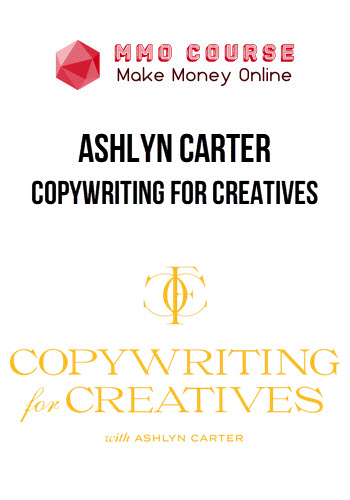Dickie Bush & Nicolas Cole – Ship 30 for 30
$599.00 Original price was: $599.00.$20.00Current price is: $20.00.
Total Sold: 8
Delivery: Instant Delivery
Dickie Bush & Nicolas Cole – Ship 30 for 30

Description of Ship 30 for 30
Demolish your bad writing habits. There are 3 killers of great writing.
Bad Habit #1: Overthinking
So many talented writers think success is about having the best ideas. It’s not. We have learned the best ideas come as a RESULT of producing a TON of ideas. Which means not overthinking the process.
Bad Habit #2: Over-editing
Have you ever re-written and edited a piece of work for so long, you started to hate it? This is one of the most common challenges among writers. They spend so long on a piece of writing that by the time they “finish” it, they hate it—and then never end up publishing it as a result.
Bad Habit #3: Falling out of practice
As soon as you skip a day of writing, it becomes easier the next day to skip again. Skip enough days in a row, and you’ll forget you ever had a daily writing habit in the first place. Getting started (or started “again”) is the HARDEST part for writers.
Stop publishing into the void.
The biggest mistake early writers make? Publishing weekly blog posts into the void. In the beginning, you think you know what you want to write about, and you think you know what people want to read. But newsflash: you don’t.
With this assumption, early writers enter a sloth-like feedback loop, which makes writing consistently impossible.
Instead, you want to make noise and listen for signal.
By writing 30 essays in 30 days, you work through months worth of ideas. And by leveraging platform algorithms like Twitter, you get immediate feedback on your writing.
Stop lurking. Start creating.
Let’s be honest.
If you’re reading this, you know you should be writing online. Since “start writing” found its way onto your to-do list, you’ve seen dozens of others do it successfully, building audiences, launching businesses, and unlocking new opportunities in the process.
But for some reason or another, you’ve been putting it off. And it’s probably some combination of procrastination, perfectionism, the fear of hitting publish, or thinking you have nothing worth saying.
Luckily, Ship 30 will get you to the other side. From lurker to contributor. From consumer to creator. And once you make the leap, you’ll never look back.
No more blinking cursor on a blank page.
If this feeling sounds familiar, you’re not alone.
In fact, you’re just like the 1,408 other writers who joined Ship 30 for 30.
Well, you’re like they used to be.
Because within days of joining Ship 30, the problem goes from having nothing to write about to having too many ideas to write about (which is a good problem to have).
How? Using our Endless Idea Generator.
Publish 30 pieces of written content in 30 days.
Writing weekly blog posts is the worst thing you can do in your first year of writing.
Slaving over a hot keyboard just to publish something that six people (three of which are your family members) will read?
No thanks.
Instead, you should start smaller with Atomic Essays. Short, single ideas expressed in under 250 words. And instead of writing weekly, you should write them daily – every day for 30 days.
During Ship 30 for 30, you’ll write 30 Atomic Essays in 30 days, just like this one.
Build an audience. Build a business. Build authority. Build a library of content.
Writing online opens up limitless opportunities.
We’ve had students go on to build audiences with thousands of raving fans. Others went on to launch courses, eBooks, newsletters, and their own businesses. And some have gone on to become published authors (from the content they created during Ship 30 for 30!)
Whatever your goals are for writing online, Ship 30 will get you there, faster.
What You’ll Learn In Ship 30 for 30
Week 0: How To Build A Writing Habit, Where You Should Be Writing Online, And How To Generate Ideas To Write About
You will leave onboarding week with the foundation, motivation, and confidence to become a prolific digital writer.
- How to effortlessly build a lifelong, sustainable writing habit (no matter how busy you are)
- How to find and create your “sacred hours” (whether you’re a morning person, night owl, or anything in between)
- Create and launch your very own Social Blog, your new online home (and understand why it’s better than a regular old blog)
- Demolish impostor syndrome, perfectionism, and over-editing once and for all (even if you think you’ve tried everything)
- Join the community, interact with your small group of peers interested in the same topics as you and with the same goals as you
- Go from “I have no clue what to write about” to “I have way too many ideas to write about” using our Endless Idea Generator
Week 1: How The Game of Digital Writing Works (And How To Play It Well)
On the Monday after onboarding week, you will write and publish your very first Atomic Essay. And then, your ship is sailing and there’s no turning back.
Week 1 is about learning how the game of digital writing works (and how it’s different than the legacy writing world).
- Publish your first week of essays, saying goodbye to sweaty palms and racing heart that come with the fear of hitting publish
- Learn to take 1 idea and say it 100 different ways using the 4A Framework (so you never run out of things to say again)
- Overcome perfectionism by “giving yourself permission to create junk” (and watch your confidence skyrocket as a result)
- Use “The Golden Intersection” to get comfortable writing about yourself (without being arrogant)
- Create your 3 Content Buckets as you learn the difference between General, Niche, and Industry audiences (so you can finally figure out who you are writing for)
Week 2: How To Capture Attention, Keep Attention, And Build Credibility
By the time Week 2 comes around, you will have published more in 7 days than you have in the last 7 weeks, months, or even years.
In Week 2, we cover everything you need to start to build an audience (without all of the headache and sleepless nights).
- Learn why writing for everyone means writing for no one (and how to use Pinpoint Writing to start finding your ideal reader)
- 20 Frameworks for writing headlines readers can’t help but click on (but without using any clickbait)
- Why your attempts at being “clever” may be the biggest thing holding you back (and what to do instead)
- Understand the 3 Types of Credibility to start writing about something no matter your expertise
- How to use the Curiosity Gap (and the “OK?” test) to craft pieces that go viral time and time again
Week 3: How To Make Your Writing Readable, Rhythmic, And Rapidly Revealing.
During Week 3, you’ll unlock some of the little-known secrets that will 10x your writing ability overnight.
These frameworks lead to more moments than any of our other live sessions – because once you see them, you will never write the same way again (and for good reason).
- How to use the “1 Chip Rule” to hook your reader and keep them reading (and why your biggest competition is TikTok and Netflix)
- 5 Proven Ways To Write A Compelling First Sentence (and why this is so important)
- Learn to write rhythmically with The 1-3-1 Writing Rhythm (and how you can use this with emails, slack messages, and all types of written communication)
- How to write enticing content using a speedy Rate of Revelation (so your reader is never bored again)
- Why “visually dense” writing could be the reason for your slow growth (and why “visually enticing” is your solution)
Week 4: Data-Driven Writing, Becoming Known For A Niche You Own, And How To Position Yourself As An Authority
By the time we get to Week 4, you will have a fundamentally new outlook for what is possible by writing online. And now, it’s time to accelerate your trajectory.
During Week 4, you will have published over 20 pieces of content. And now, you’re going to figure out what worked, what didn’t, and where to go from here.
- Learn the 7 data points you should be testing and measuring (so you can see the growth you deserve)
- Master the analytics on any platform (so you can stop guessing and start doubling down on what’s working)
- How to position your bio for authority and specificity (and why you’re doing this wrong)
- Become known for a niche you own (and why you must stop trying to be “better” and learn to start being “different)
- How to get feedback from your audience (and let them inform you what to write next)
About Dickie Bush & Nicolas Cole
Dickie Bush
Ahoy! I started writing online in January of 2020 – and doing so is by far the best decision I’ve ever made.
But for the first 9 months, I was spinning my wheels. I followed all of the conventional advice: “write a weekly blog post on your website so you can own your platform, write about only things you want to write about” and all of that other common advice.
The problem? There was no feedback loop. The weekly cadence was too slow to work through all of the ideas in my head. And since barely anyone was reading them, I had no clue what I could improve or what my readers were looking for.
So I needed to try something radically different. If I was going to keep writing, I needed to tighten my feedback loops.
This meant going from publishing 1000-word weekly blog posts to posting short, 250-word posts.
And instead of publishing into the void of my own blog, I would post them on Twitter, where I knew there was aggregated attention.
And so off I went. I challenged myself to write and publish something daily, every day for 30 days. 28 days in, the results were pretty good.
My perfectionism? Squashed. My writing speed? 10x faster. My feedback loops? And damn it felt good to work through the backlog of ideas in my head.
And during my personal 30 day challenge, I grew my audience by over 500%. I made my first dollar on the internet. And I woke up every morning excited to write, publish, and improve.
Turns out there was something to this writing and publishing every day idea. I knew there had to be thousands of others out there who were facing the same creative friction as me, and this idea could help them burst through it.
So I sent a tweet to my nascent following of 500 people.
Six days after that tweet, we had 50 people in a Slack channel and we were off and running. Every person committing to writing and publishing every day for 30 days. Learning, iterating, building friendships, and having a damn good time doing it.
Nine months and 1,800 students later, Ship 30 for 30 has evolved from a Slack channel to an immersive, cohort-based writing course and community.
Cole and I have packed everything we know about building habits and writing online into over 20 hours of curriculum.
We’ve built templates and guides to help anyone, no matter their level of experience, start writing online. And we’ve built a rich, diverse community of like-minded writers and thinkers.
I can attribute every good thing in the last 18 months of my life to writing every day. I’ve gotten to meet and connect with people I used to idolize. And best of all, I’ve helped over 1,800 people experience the benefits that come with writing online.
And the best part of this whole thing? Ship 30 for 30 is just getting started.
Nicolas Cole
Ahoy! As a teenager, I had one of the first e-famous gaming blogs on the Internet.
I went on to study creative writing, fiction writing, and literature in college. But when I graduated, I had no idea how I was going to turn this passion of mine for writing into a career.
I took a job as an entry-level copywriter at a local advertising agency in downtown Chicago, but that’s not what I really wanted to do.
I wanted to write books. I wanted to share my own thoughts and ideas with the world (not write social media copy for pizza chains and coconut water brands).
So, in an attempt to build myself as a writer in the digital age, I gave myself a goal.
I challenged myself to write every single day, on a website called Quora, for a year straight.
Best-case scenario, I would experience some sort of life-changing result and my writing would take off.
Worst-case scenario, I’d spend a year doing something I already loved and enjoyed, which was writing.
Well, writing every single day on Quora changed the entire trajectory of my life.
I ended up accumulating millions of views on my writing. In fact, one of my Quora answers ended up on the front page of Reddit, accumulating over 1,000,000 views in 48 hours.
By 2015, I was the #1 most-read writer on all of Quora (out of 200 million users).
And by 2016, I was invited to have my own column with Inc Magazine—where I wrote 400+ columns for the publication exclusively and became one of their Top 10 most-read contributing writers.
By the end of 2016, 3 short years after writing every single day on Quora, I successfully quit my job as a copywriter and began freelance writing for founders, CEOs, and venture capitalists.
By 2017, I had built a multimillion-dollar ghostwriting agency employing a dozen writers and editors, ghostwriting on behalf of hundreds of industry leaders.
And by 2020, I had turned everything I’d learned about writing online into a book, called The Art and Business of Online Writing.This brings us back to the beginning of the story.
By the time Dickie and I met, and I gave Ship 30 for 30 a try, I knew the importance of building a daily writing habit.
Why?
Because building daily writing habit was how I got my start as a writer. Challenging myself to write and publish something, anything, on Quora, every single day for a year, changed my life.
And I knew what Dickie was building had the potential to change other people’s lives too.
And the rest is history.
Combined with Dickie’s incredible idea for a cohort-based learning experience for writers, I brought in 10+ years of online writing insight to create a curriculum for anyone looking to get STARTED.
It had taken me years to learn many of these lessons on my own. But in Ship 30 for 30, we believed we will shorten your growth curve down to just 30 days.
Sale Page: Dickie Bush & Nicolas Cole – Ship 30 for 30
Related products
»Instant Delivery
Total sold: 13
»Instant Delivery
Total sold: 3
»Instant Delivery
»Instant Delivery
Total sold: 1
»Instant Delivery
Total sold: 4
»Instant Delivery
Persuasive Copywriting: Using Psychology To Influence, Engage And Sell – Value $61.95
Total sold: 2
»Instant Delivery
Total sold: 2
»Instant Delivery
Total sold: 1


